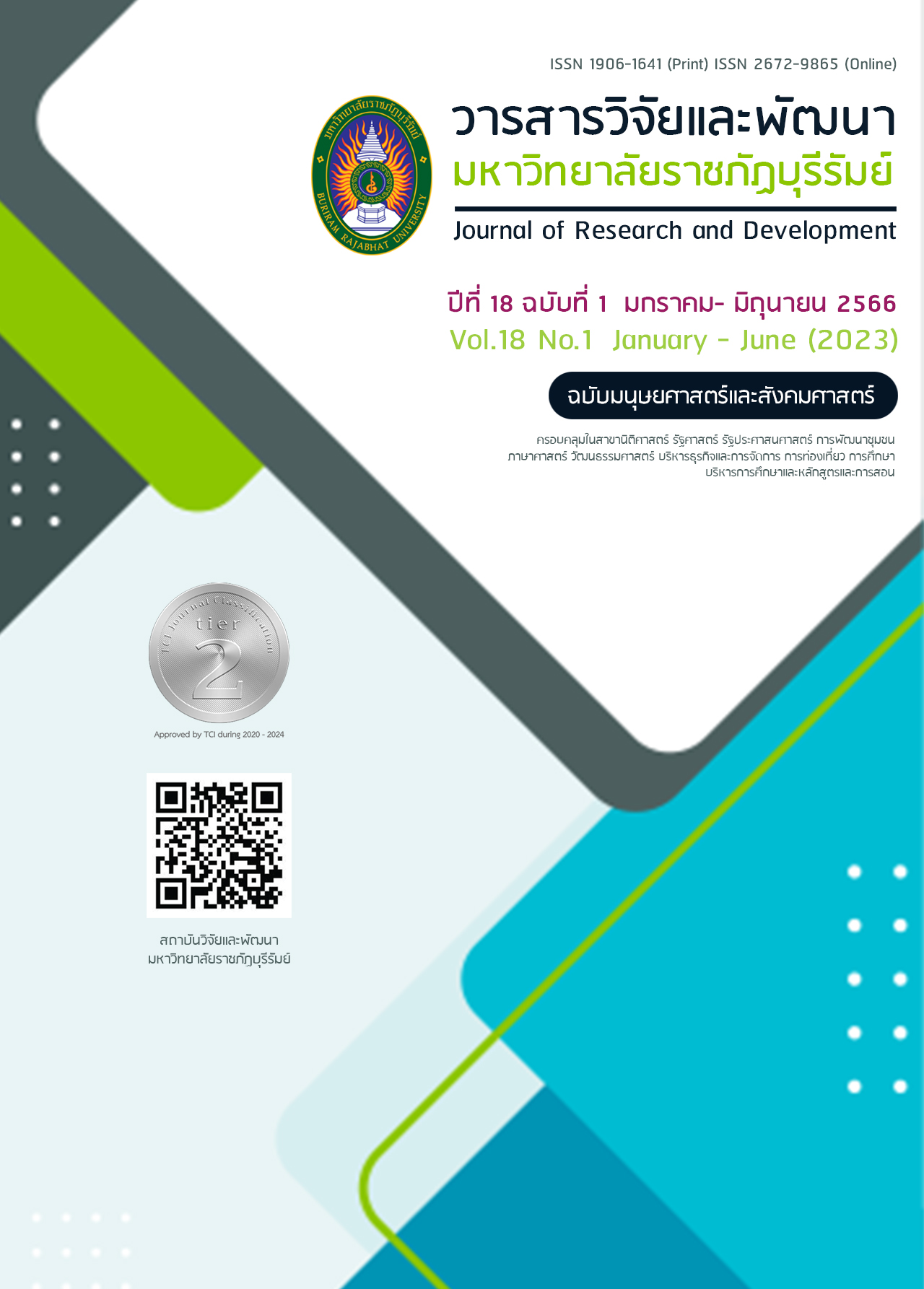New Normal in the Post-COVID-19 of the Elders, Maeka Sub-District, Muang District, Phayao Province no
Main Article Content
บทคัดย่อ
This research aims at 1) studying forms of the so called ‘new normal’ adopted by the elders in Maeka Sub-district, Muang District, Phayao Province, and 2) proposing how to adjust to the new normal after the COVID-19 epidemic for the elders. The data were collected by means of observations, non-formal interviews, and focus group discussions drawn from the 40 informants consisting of visiting lecturers, volunteer teachers, and elderly students in Elderly Learning Center of Wat Maekahuaykhian, Maeka Sub-district. It was found that the so called ‘new normal’ is a type of new way of life after the pandemic of COVID-19 throughout the country since 2020. It significantly affected the forms of elders’ living in Maeka Sub-district in 4 aspects: 1) beliefs and traditions with lesser congregations in the monastic affairs, festivals and traditions, 2) health care with more awareness in life such as wearing masks, keeping personal distances, 3) the economic difficulties with more bills concerning the medical payments such as masks, sanitizing alcohol, and 4) social relations with fewer usual gatherings and celebrations. For the lessons learnt of how to adjust in accordance with the situations, it was found that there should be the fourfold mode of living: ‘learning, accepting, adjusting, and changing’. That is to say, 1) being open-minded to ever learn new emerging things such as COVID-19, 2) being mindful and accepting it as a temporary threat, 3) adjusting behaviors in accordance with the pandemic, and 4) changing into the new normal.
Keywords: New Normal, COVID-19, Adjustments, Elders
Article Details

อนุญาตภายใต้เงื่อนไข Creative Commons Attribution-NonCommercial-NoDerivatives 4.0 International License.
เนื่อหาและข้อมูลในบทความ เป็นความรับผิดชอบของผุ้แต่ง
บทความในวารสารเป็นลิขสิทธิ์ของวารสารวิจัยและนวัตกรรมท้องถิ่น
เอกสารอ้างอิง
Buasri, Sukanya, et.al. (2022). “Promoting Holistic Health of Home-bound and Bed-bound Elders
with Creative 5 Dimensions of Happiness according to the Buddhist Concept by Integrating Innovative Media”. The 12th International and the 1st National Conference on Buddhist Studies, Mahachulongkornrajvidyalaya University, Chiang Rai, Thailand, August 27, 2022.
Charnnarong, Chulasak. (2021). “Health Care Guidelines during Covid-19 Crisis by Applying
Buddhist Principles”. Journal of Humanities and Social Sciences Nakhon Phanom University, 11 (.2), 317-327.
Megginson, Leon C. (1963). The evolution of misquotation. Retrieved on 11 March 2022 from
Roy, Sister Callista. (1976). Roy's Adaptation Model of Nursing. Retrieved from https://nursing-
theory.org/theories-and-models/roy-adaptation-model.php.
Tangwong, Supranee, et.al. (2022). “Adaptive behaviors on new normal after the COVID -19
epidemic of elderly in elderly club at Ban Pong District in Ratchaburi Province”. Thai Journal of Nursing, 71 (2), 57-63.
TDRI (Thailand Development Research Institute). (April-May 2019). Survey on the Socio-
Economic Impacts Caused by the Pandemic and Preventive measures. Retrieved on 21 April 2022 from https://tdri.or.th/2020/09/the-impact-of-covid-19-on-older-persons/.
TGRI (Foundation of Thai Gerontology Research and Development Institute). (2020). Report on
Situation of Thai Older Persons 2020. Retrieved on 8 February 2022 from https://thaitgri.org/?p=39772


